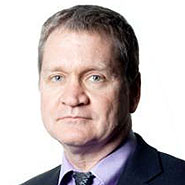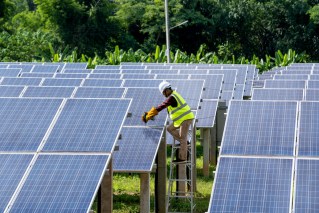Vacancy exists for policies helping young into work


Shutterstock
Australia’s young people are finding it harder to get their first job, according to the Reserve Bank of Australia.
They’re staying in education longer, but they’re also spending longer on the dole.
And there’s about 270,000 people aged between 15 and 24 who are unemployed, up by 20,000 over the past year.
• How Team Australia is hurting the future for our young
• The Coalition must move from fear to hope
• New inquiry puts minimum wage in the spotlight
That’s the warning from the RBA’s statement on monetary policy for February, which has hardly rated a mention during the hullaballoo over Tony Abbott’s prime ministership.
Sure, it’s expressed in the bank’s usual dry, cautious language as it noted that the “cyclically sensitive components of unemployment were elevated over the past year”.
But then come a punchy few paragraphs in the RBA bulletin’s section on domestic economic conditions on which young people and parents know:
Youth unemployment, which tends to be particularly sensitive to the business cycle, has increased notably; 270,000 people aged between 15 and 24 years are now unemployed, 20,000 more than a year ago.
Much of the increase in youth unemployment over the past few years, and in 2014 in particular, has been accounted for by those in full-time education who are searching for work.
More generally, a higher incidence of full-time education has accompanied the reduction in the size of the youth labour force. However, there is also evidence that it is harder to find a job on completion of tertiary education.
As a result, a rising portion of young job seekers are yet to find their first job and the average duration of unemployment among 20 to 24 years old has increased.
This lack of jobs for young people, which is worse in regional Australia, is linked to federal politics but not to the leadership speculation.
No, it’s more closely linked to policies than personalities. Do the Abbott government’s policies – like introducing a waiting period before receiving the dole and for increasing tertiary education fees – make sense given that young people are struggling to find work?

Youth unemployment has risen by more than 20,000 over the past 12 months.
I argued last year that the so-called “Team Australia” was letting down young people and that many current policy settings play to the narcissism and greed of a well-heeled cohort of older Australians who don’t need more breaks from other taxpayers.
Specifically, why do the top 20 per cent of income earners get half of all superannuation tax concessions?
Who benefits most from negative gearing on investment properties, which is helping to push home ownership beyond the reach of many young people?
The problem is exacerbated by the problems in Australia’s vocational training system, which are still emerging but will, hopefully, be thoroughly examined in a forthcoming Senate inquiry.
Earlier this month, the Australian Education Union (AEU) released research which shows that privatisation of vocational training and TAFEs has led to a drop in quality of courses and huge taxpayer-funded profits to private providers.
The research, conducted by the University of Sydney’s Business School on behalf of the AEU, found that the for-profit vocational education and training (VET) sector have been raking in the dough despite questions over the quality of their courses.
The study found the for-profit VET providers listed on the Australian Stock Exchange have profit margins of around 30 per cent, a handsome take for any enterprise.
So never mind all the high-flown political rhetoric about inter-generational theft.
Young people are our future and they deserve better.
Mark Skulley is a freelance journalist who is based in Melbourne. He was a reporter for The Australian Financial Review for almost 19 years, which included a decade covering national industrial relations and the world of work. He has since written for The New Daily and other outlets. View all of his columns here.








